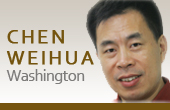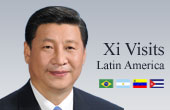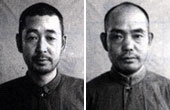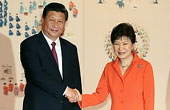ROK launches committee for reunification with DPRK
(Xinhua) Updated: 2014-07-15 15:04SEOUL - The Republic of Korea (ROK) launched a presidential committee for systematic preparations to reunify with the Democratic People's Republic of Korea (DPRK), the presidential office Cheong Wa Dae said Tuesday.
The Cheong Wa Dae announced 50 members of the committee, which will be chaired by President Park Geun-hye, saying the inaugural session will be held early next month.
|
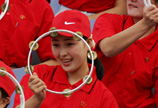 DPRK, ROK to hold talks on Asian Games |
The members include 30 private experts, two lawmakers, 11 government officials and six heads of the state-run think tanks.
One of the two deputy chairmen was Chung Chong-wook, former ROK ambassador to China and former senior presidential secretary for foreign affairs and national security.
From the government side, Unification Minister Ryoo Kihl-jae was named as the deputy head of the committee.
The office said the 30 private experts, who came from academic, bureaucratic, economic and social areas, had rich experience and expertise on reunification, noting they will join four sub- committees to draw up actual outcomes for peaceful reunification.
The four sub-committees represent foreign affairs and security, social and cultural sectors, political and judicial areas as well as the economy.
The 11 government officials included Ryoo and six other related ministers as well as senior presidential secretary for foreign affairs and national security and deputy head of the National Security Council (NSC).
In her New Year's speech, President Park raised the issue of reunification with the DPRK, calling it a "bonanza" for the two Koreas and a blessing for countries in the region.
Park promised in January to form the committee to push for and prepare for peaceful reunification with the DPRK, and announced the so-called "Dresden Declaration" during her trip to Dresden, Germany in March.
The initiative refers to President Park's three-point proposal to the DPRK, including infrastructure development and natural resources exploration in the DPRK as well as broader inter-Korean exchanges in non-political areas such as history, culture and sports.



